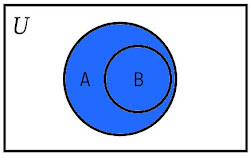Decomposing a polynomial into factors by applying the formulas for short multiplication
Each of the abbreviated multiplication formulas we have looked at so far is an example of representing a polynomial as a product, for example a^2-b^2=(a-b)(a+b), on the left hand side we have the polynomial a^2-b^2 and on the right hand side the product of factors (a-b)(a+b). In the same way, a^2\pm 2ab+b^2=(a\pm b)^2. Clearly we see that again we have a polynomial on the left hand side of the equality and a product on the right hand side. Let's write down the other formulas with the left and right parts swapped a^3\pm 3a^2b+3ab^2\pm b^3=(a\pm b)^3 and a^3\pm b^3=(a\pm b)(a^2\mp ab+b^2). We'll see below how we can apply these equalities to specific problems.
Problem 1 Decompose the polynomial 4x^2-y^2 into factors.
Solution: In our case a=2x and b=y, therefore 4x^2-y^2=(2x-y)(2x+y).
Problem 2 Decompose the polynomial p^2-(x+y)^2 into factors.$
Solution: Again apply a^2-b^2=(a-b)(a+b), in this case a=p, b=x+y, hence [p-(x+y)](p+x+y)=(p-x-y)(p+x+y).
3 Problem Decompose the polynomial 16b^2-8b+1 into factors.
Solution: To decompose this polynomial, we will apply the formula (a-b)^2=a^2-2ab+b^2 that we considered here, taken "from left to right", i.e. a^2-2ab+b^2=(a-b)^2.
4 Problem Decompose the polynomial 8x^3+12x^2y+6xy^2+y^3 into factors.
Solution: Let us write the given polynomial in the form (2x)^3+3.(2x)^2.y+3.2x.y^2+y^3. It is not hard to notice that we can apply the formula a^3+ 3a^2b+3ab^2+b^3=(a+b)^3 (more about this formula can be found here), in our case a=2x and b=y, therefore (2x)^3+3.(2x)^2.y+3.2x.y^2+y^3=(2x+y)^3.
5 Problem Decompose the polynomial 64a^3+27b^3. into factors
Solution: Notice that given polynomial, we can represent in the form (4a)^3+(3b^3). Apply the formula a^3+b^3=(a+b)(a^2-ab+b^2) (more about this formula can be seen here), from where we get that (4a)^3+(3b^3)=(4a+3b)(16a^2-12ab+9b^2).
6 Problem Decompose the triplet x^2-8x+15 into factors.
Solution: Now it is not difficult to see that x^2-2.x.4+16=(x-4)^2 (a^2-2ab+b^2=(a-b)^2), hence x^2-8x+15=(x-4)^2-1. We still have one more step to solve the problem. Let us now consider (x-4)^2-1=(x-4)^2-1^2. We apply the formula a^2-b^2=(a-b)(a+b), where a=x-4 and b=1 and obtain that (x-4)^2-1=(x-4)^2-1^2=(x-4-1)(x-4+1)=(x-5)(x-3).
7 Problem Find the largest value of \frac{6}{x^2+4x+5} and the value of x at which it is obtained.
Solution: represent the denominator of the given fraction in the form \frac{6}{x^2+2.x.2+2^2+1}, hence \frac{6}{x^2+2.x.2+2^2+1}=\frac{6}{(x+2)^2+1}. Clearly, the smaller the denominator of a fraction, the larger it is (it's one thing to divide a pizza among three, it's another if you divide it among six). The smallest value that (x+2)^2 can take is 0, since (x+2)^2\geq 0 for any x, with (x+2)^2=0 when x=-2. From here we conclude that the largest value that the given fraction can take is at x=-2 and it is equal to \frac{6}{0+1}=6.
8 Problem To decompose into factors the polynomial x^6-1.
Solution: Now apply the formula a^2-b^2=(a-b)(a+b), where a=x^3 and b=1, hence (x^3)^2-1^2=(x^3-1)(x^3+1). For the first multiplier we use that a^3-b^3=(a-b)(a^2+ab+b^2), and for the second a^3+b^3=(a+b)(a^2-ab+b^2), where (x^3-1)(x^3+1)=(x-1)(x^2+x+1)(x+1)(x^2-x+1), which solves the problem. Try decomposing this polynomial using that x^6-1=(x^2)^3-1^3.
9 Problem Decompose the polynomial x^{2k}+2x^ky^l+y^{2l} into factors.
Solution: We can represent the polynomial in the form (x^k)^2+2x^ky^l+(y^l)^2. Now substituting in a^2+2ab+b^2=(a+b)^2 with a=x^k and b=y^l, we get x^{2k}+2x^ky^l+y^{2l}=(x^k+y^l)^2.
Homework assignments
1. Decompose the polynomial into factors:
a) x^2+18x+81; b) 4x^2-16y^2; c) y^3+15y^2+75y+125; d) 27u^3-64v^3.
2. Find the numerical value of the expression (2x-1)^2-81x^2 when x=1.
3. Prove that if a+b is divisible by 5, then a^2-b^2 is also divisible by 5.
4. Find the smallest value of the expression x^2-10x+37 and the value of x at which it is reached.
5. Prove the identity (a(x+y)+b(x-y))^2-(a(x-y)+b(x+y))^2=4xy(a-b)(a+b).



Коментари
Публикуване на коментар